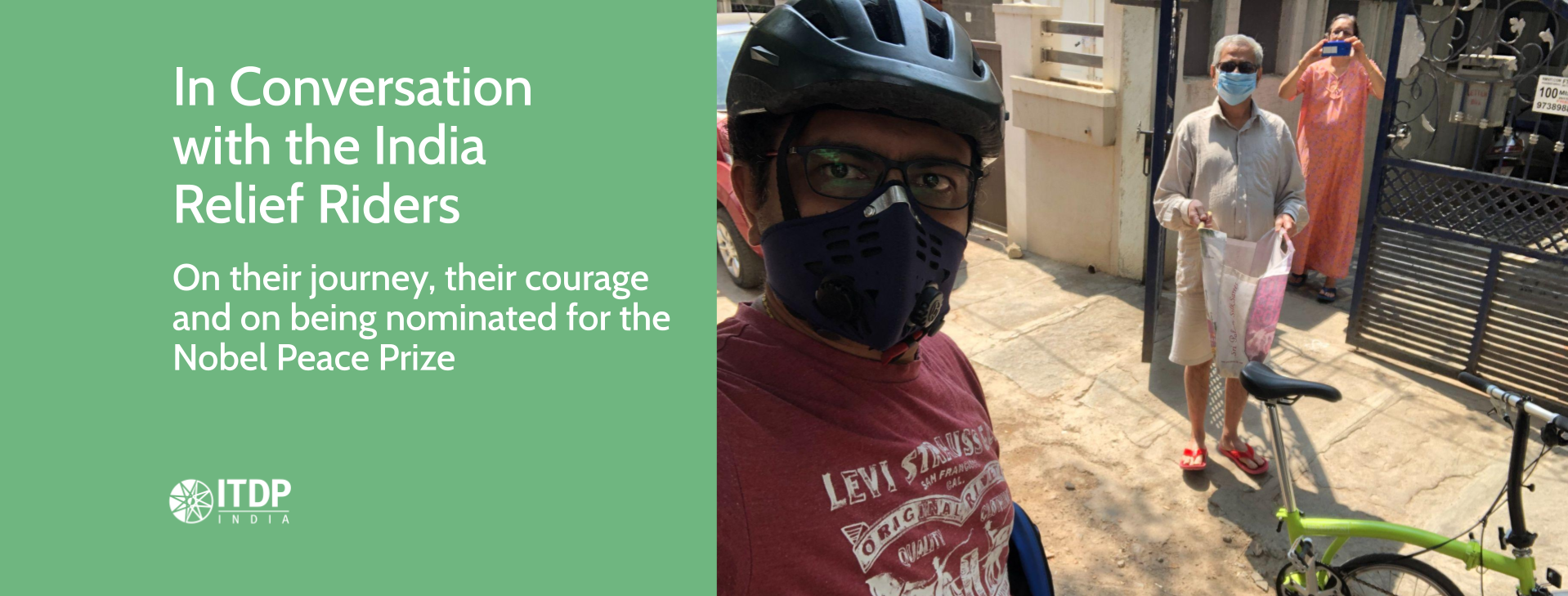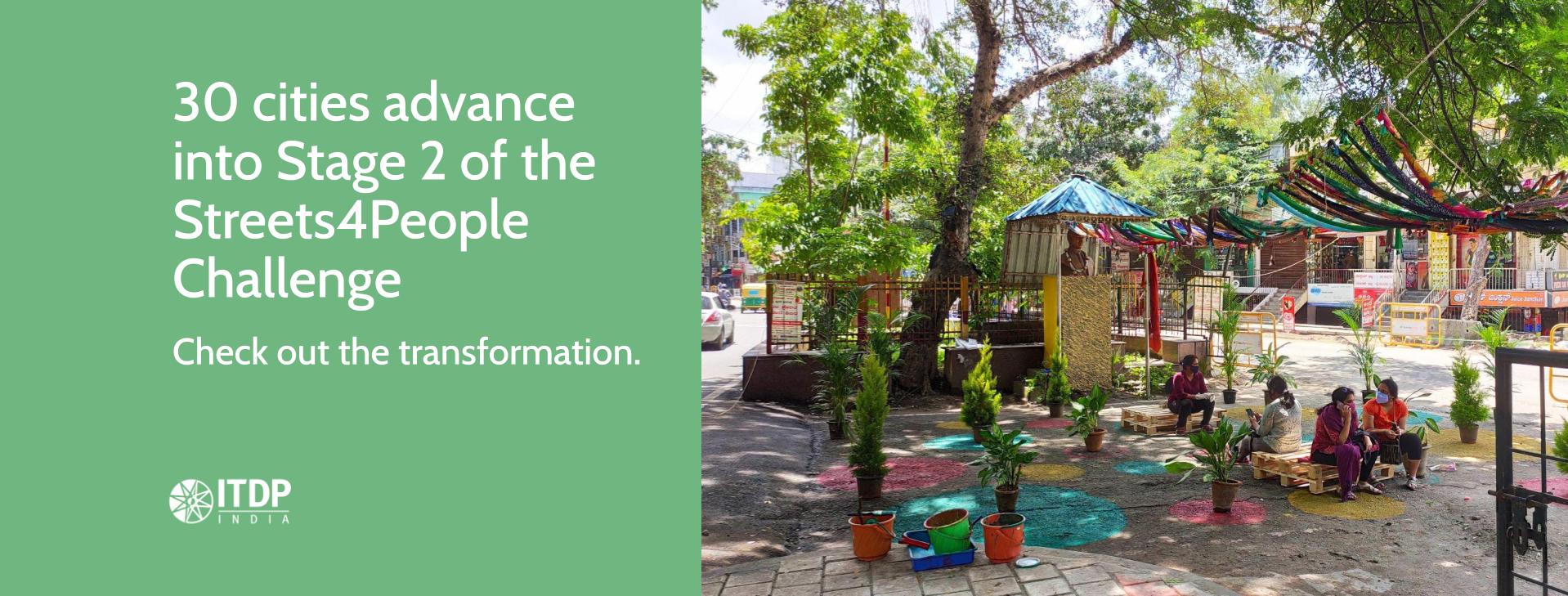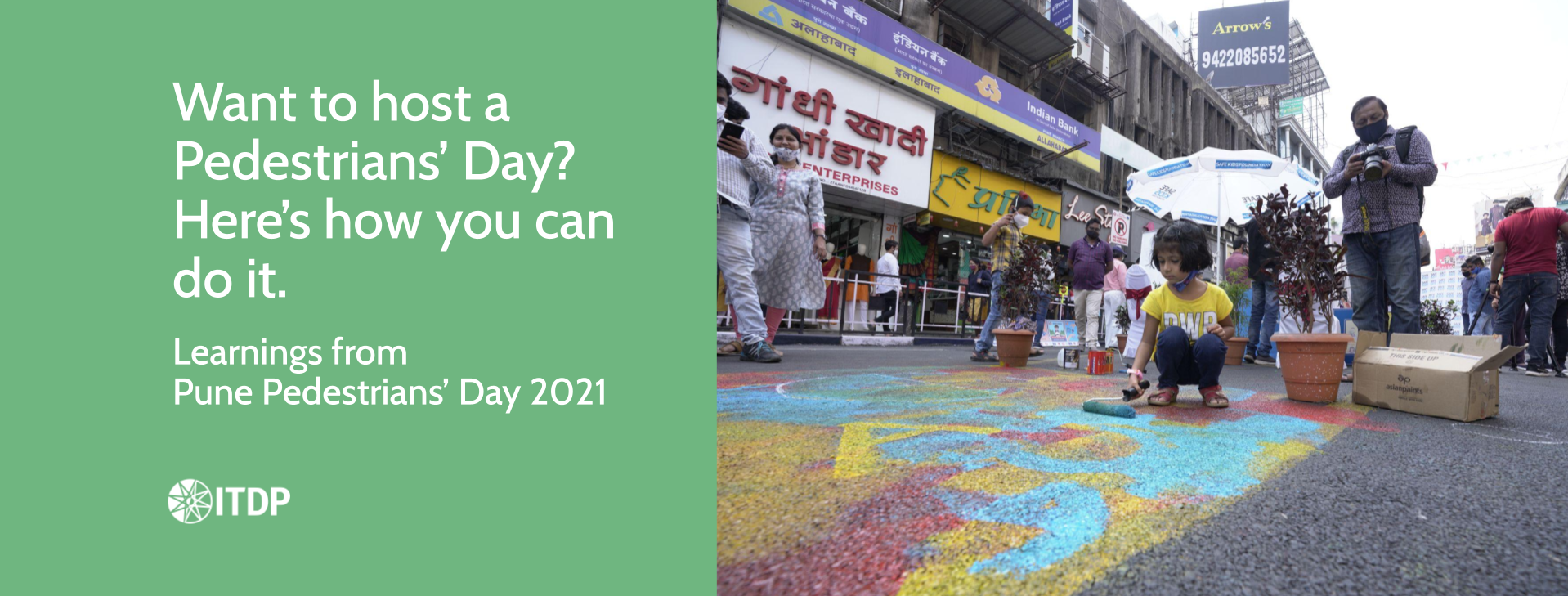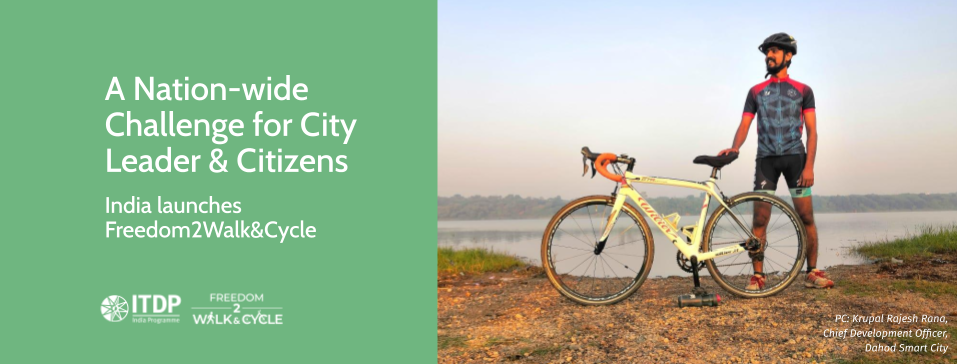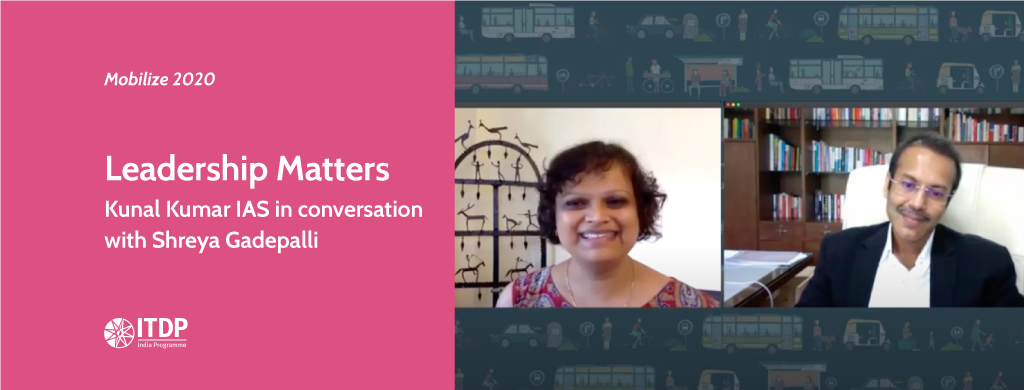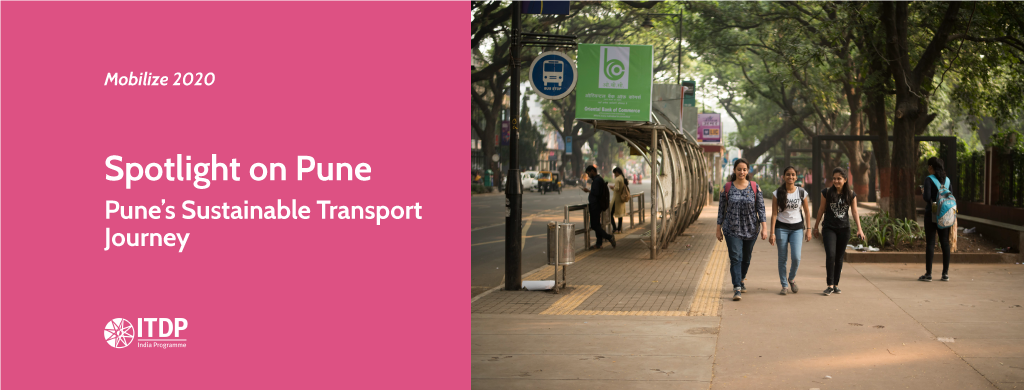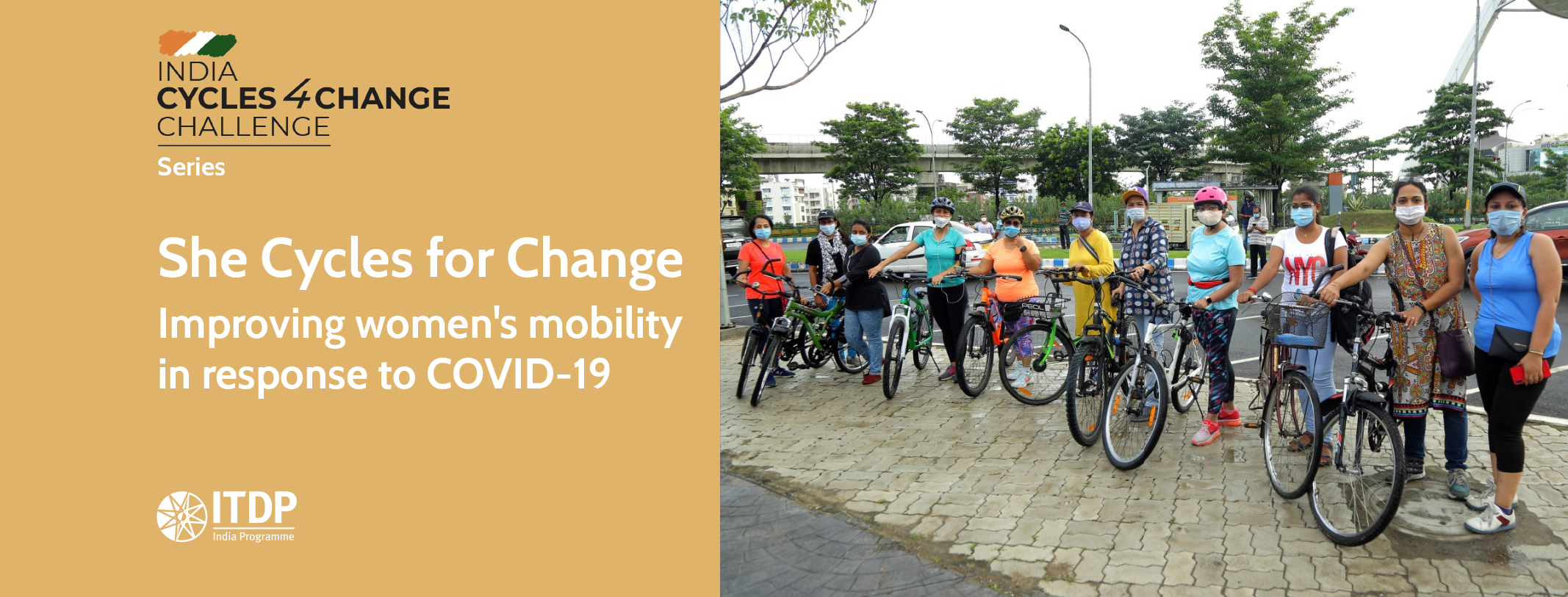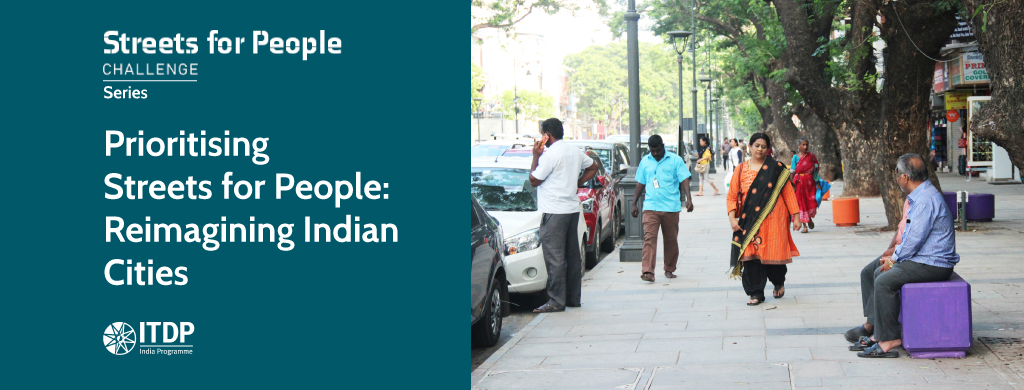Lockdown—the one word we dread to hear but the one word that has resonated with us since 2020. Memes popped across the globe about saving the world by staying indoors; masks made a fashion statement; the airline industry lost over USD $100 billion in revenue; Zoom was our new classroom. We watched in agony the news on daily death tolls and endless demand for hospital beds and oxygen cylinders. We were empathetic yet helpless. But for the India Relief Riders the pandemic was nature’s call for help, for humanity.
From seven cyclists on day one of the lockdown in 2020, to 725 by the end of the second lockdown in 2021, this group of volunteers served 2,500 people across 13 cities delivering medicines, food, clothing and other essentials to the most vulnerable in the community. All this, while saving more than 5 tonnes of CO2 emissions in the process. People even came to rely on their delivery services to survive quarantines. Their noble efforts echoed worldwide and inspired others like the Bike Brigade in Toronto to follow their model.
We are in conversation with Sathya Sankaran (The Bicycle Mayor of Bengaluru), Felix John (The Bicycle Mayor of Chennai) and Santhana Selvan (The Bicycle Mayor of Hyderabad) who lead efforts of the Relief Riders in their respective cities. Hear their stories—what kept them going, what made them vulnerable, and how they felt about being nominated for the prestigious 2022 Nobel Peace Prize.
Ready? Steady. Pedal!
Q1 How did the idea for ‘Relief Riders’ come about especially at a time when staying indoors was the new norm? Was there a particular incident that instigated this act of kindness?
Sathya: A day into the lockdown, someone on Twitter asked “What are the cyclists of Bengaluru doing?”. So, I asked the #CycleToWork ambassadors group if they were interested in delivering supplies. Seven signed up immediately. In 24 hours, we had 30 people on a Relief Riders WhatsApp group— with some providing their numbers to take request calls, and others chiming in with coordination roles. We opened up to all cyclists in the city and before the end of the first lockdown we had 80 people in Bengaluru delivering supplies to more than 250 families.
Santhana and Felix drew inspiration from Sathya and kickstarted efforts in Hyderabad and Chennai. It was also their opportunity to change the perception of cyclists in India.
Santhana: We want to reiterate the point that Cyclists are not a problem on the road, but they are the solution on the road.
Q2 Batman had a fear of bats. Deadpool feared clowns and cows. Wolverine had a fear of flying and drowning. What made you vulnerable during your rides as a Relief Rider and how did you overcome it?
All three expressed their fear of the virus itself. This fear impelled the setting of some ground rules for the entire team, for their safety and that of the people who they helped. Thus, their tagline—“We carry supplies, not the virus”.
Felix: Yes, we were scared! Being scared is good because your brain is tuned to not repeat or make mistakes—survival instincts. We developed strict Standard Operating Procedures (SOP) which was disseminated to the volunteers.
Sathya: We never went into people’s homes and left the supplies at a safe distance. We had algorithms that would spread the sorties among many people and also identified closest riders to reduce exposure. We asked people to mark themselves as ‘inactive’ from deliveries if they were infected, in quarantine zones, or in contact with infected people.
Santhana: We as a community made sure that we were all fully vaccinated, by conducting volunteer drives. Even the government supported this by providing vaccination to our community.

Q3 It started off in Bangalore and spread like wildfire to cities like Chennai, Delhi-NCR, Hyderabad, and many more. How were you able to scale-up so fast in more than 12 cities?
Santhana: While bad things spread fast, Relief Riders is proof that good things can spread faster. In every city, the efforts were initiated and led by the Bicycle Mayors. The cycling community came together under strong leadership, thus, the scale-up was possible.
To scale-up, the use of technology and having strong leadership was reiterated by Sathya.
Sathya: We used technology and had established a clear standard operating procedure. We borrowed open source ticketing tools, built location based algorithms which would take into account the distance of the riders from the requestor, the number of times the person has already delivered etc. For each city we identified an anchor. This person would then lead the relief efforts in their city. The key to scale is to create leadership that can operate with independence but adhering to the core philosophy and process.
Felix: The cyclists network across India is constantly growing for many reasons. And when anyone becomes a cyclist they also become empathetic and that drives every city to do their best for the people.
Q4 How many women were part of the Relief Riders groups?
Felix: There were many women riders who wanted to participate but couldn’t because their family took priority. However, flexible time slots for deliveries (when they felt safe during the day) encouraged many of them to participate.
Sathya: 17% of 275 Relief Riders in Bengaluru were women. The back office was mostly managed by women and personally I found that more work got done by the women, andmen followed the instructions of women better. Smiles
Santhana: In Hyderabad, the entire backend of the ‘food network’ we built was completely served by individual home kitchens led by women across the city.
Q5 Talk about one incident during your ride as a Relief Rider that you will remember for the rest of your life – something that made you proud of the kind of work you were doing for others.
Santhana: We had to transfer clothing, home food, medicines and essential documents from far-east to The Telangana Institute of Medical Sciences (TIMS) Gachibowli in the west. The route was very long and the hospital was full of COVID infected patients. Our Hyderabad Relief Riders did a relay ride, passing the essentials from one rider to the other!
Another incident – we delivered a rare medicine that was needed by a patient in Kurnool (outside the city limits), through a private bus driver. The medicines reached the next morning that saved his life.
While Santhana was able to draw some awe-inspiring moments of how lives were saved because of the timely efforts of the brave cyclists, Felix and Sathya look back at their journey and the thousands of lives that were impacted, including their own.
Felix: Every delivery is something to remember; the act of kindness without any expectations and receiving people’s empathy and their blessings is everything to remember and be proud of. We did this for the people who did not have any help. Like I said, empathy took precedence over courage.
Sathya: From aged people who were looking for help, to the poor who couldn’t feed themselves, to the sick, hungry people who needed food and medicines, every experience of every Relief Rider just reinforced the fact that what we did made a difference to many many lives and to the city by not emitting an ounce of CO2 or any toxic fumes.
Q6 I’m sure you have loved ones who may have been concerned about you stepping out during the peak of the pandemic. How supportive were they in your endeavors?
Sathya, Santhana and Felix owe their efforts to their families. The severity of the second wave in India was jolting for most; there is no doubt their families worried about their safety. But their families were just as empathetic to those who needed their help in the absence of family.
Felix even pointed out that the first point of their SOP was talking to their families about being part of this endeavor.
Santhana: As all the volunteers are full-time employees of companies, we could not compromise on the office time, but we compromised on the personal time (mornings, evenings, and nights) but our families were completely supportive. Thanks a lot to all the families who supported us.
Q7 Should cities and the people need your help again, will you continue your efforts and how do you plan on sustaining these efforts?
Santhana: While I am addressing this interview, we are also about to encounter the third wave with Omicron on the rise. We are gearing up in Hyderabad with the relaunch of Relief Riders as we speak.
Sathya: The systems we have put in place allow us to get started within a few hours with a small team and ramp up to hundreds of volunteers within a few days to be able to service in an emergency.
Q8 Describe in just one word (or two), of how you felt when you heard about the Relief Riders being nominated for the Nobel Peace Prize.
If you wish to be a part of this endeavor, then sign up to become a Relief Rider here.
Written by: Kashmira Dubash
Senior Manager, Communications and Development, ITDP India
Please note, the article is published with consent from The Relief Riders – Sathya Sankaran (The Bicycle Mayor of Bengaluru), Felix John (The Bicycle Mayor of Chennai) and Santhana Selvan (The Bicycle Mayor of Hyderabad). The Bicycle Mayor is a BYCS initiative, intended for cities to benefit from having a catalyst representing cycling progress and the interests of the community.




